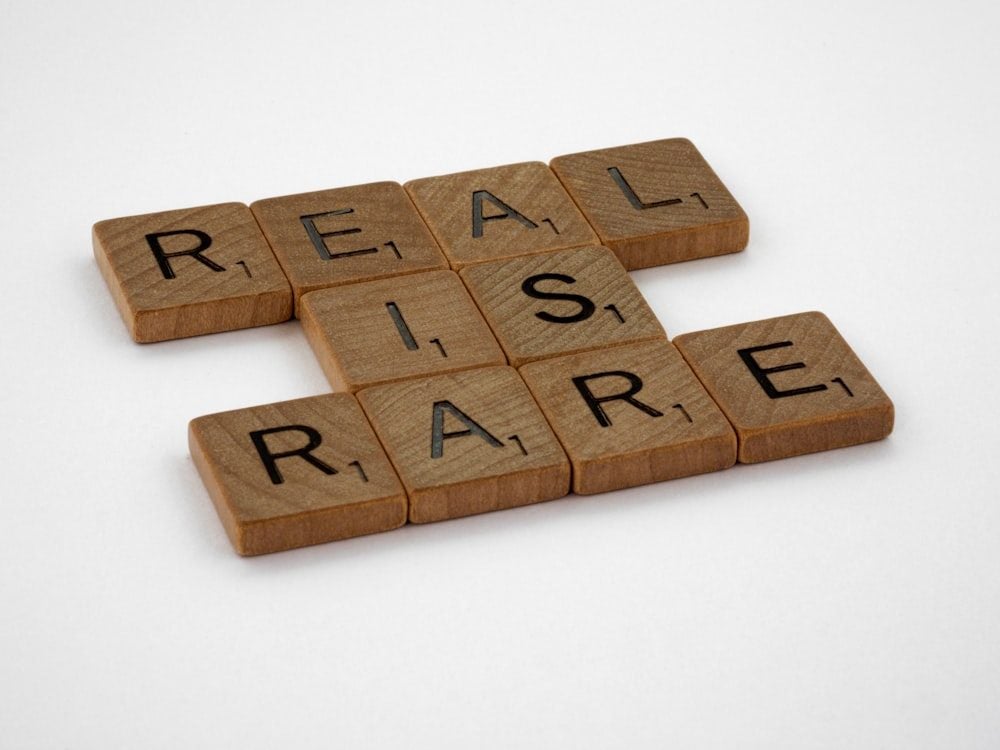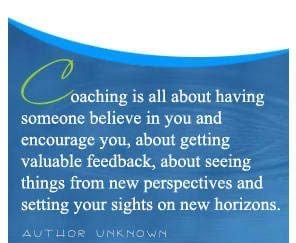May 23, 2024 in Life Coaching
The Fear of Being Authentic
In a world seemingly obsessed with authenticity, why do so many of us struggle to fully embody our true selves?
It's your turn now! Let's support each other by clicking "Helpful".
+1

DISCUSS #Relationship
DISCUSS #Parenting
In a world seemingly obsessed with authenticity, why do so many of us struggle to fully embody our true selves? What is it about embracing our authentic nature that often feels so terrifying?
The fear of being Authentic is a complex and deeply rooted phenomenon that affects individuals from all walks of life.
We’ll delve into the depths of this fear, uncovering its origins and manifestations and, ultimately, how we can overcome it to live more genuine, fulfilling lives.
Understanding the Fear of Being Authentic
At its core, the fear of being authentic stems from various sources, from societal expectations to personal insecurities (rooted in childhood trauma). From a young age, we’re conditioned to conform to certain norms and standards set by our families, communities, and cultures. We’re taught to fit into predefined boxes, often at the expense of our true selves.
As we age, our fear of authenticity can intensify as we become more aware of the potential consequences of deviating from societal expectations. We worry about being judged, rejected, or abandoned for expressing our true thoughts, feelings, and desires.
Add to myWE:
The fear of being authentic can become so deeply ingrained that we may not even recognize how much we are suppressing parts of ourselves to please others or avoid conflict.
This suppression can lead to a profound internal conflict, where we are at odds with our desires, beliefs, and emotions.
Avoiding conflict with others is a strategy for maintaining harmony in relationships. Still, it often comes at a significant cost to our well-being. When we consistently prioritize external peace over our internal truth, we start a conflict within ourselves – between the mask we present to the world and the authentic selves we bury beneath it.
This inner conflict can be incredibly damaging, eroding our sense of self-trust and self-esteem. As we betray our authenticity to appease others, we send ourselves the message that our true selves are not worthy of acceptance or love. Over time, this erodes our confidence in our judgment, desires, and abilities, leading to a pervasive sense of inadequacy and self-doubt.
Furthermore, when we suppress parts of ourselves to avoid conflict or gain approval, we deny ourselves the opportunity for genuine connection and fulfillment.
Authentic relationships are built on honesty, vulnerability, and mutual respect – qualities that cannot thrive in an environment of deceit and suppression.
Breaking free from this cycle requires a willingness to confront our fears, acknowledge our suppressed emotions, and cultivate the courage to embrace our authenticity, even in the face of potential conflict or rejection.
It involves relearning how to trust ourselves, honor our needs and boundaries, and cultivate relationships that celebrate rather than diminish our true selves. While this journey may be challenging, the rewards – deep self-acceptance, genuine connection with others, and a life of integrity and purpose – are well worth the effort.
Manifestations of the Fear of Being Authentic
The fear of being authentic can manifest in various ways, both internally and externally. Internally, it may lead to disconnection, dissatisfaction, and a lack of fulfillment. We may live empty or meaningless lives despite outward appearances of success or happiness.
Externally, the fear of being authentic can manifest as a reluctance to speak our truth, assert our boundaries, or pursue our passions. We may hide behind masks of conformity, presenting a carefully curated version of ourselves to the world while concealing our true thoughts and feelings.
This can lead to inner turmoil and cognitive dissonance as we struggle to reconcile our authentic selves with the personas we project to others.
Childhood trauma, particularly experiences of rejection and abandonment, can significantly exacerbate the fear of being authentic. When a child experiences rejection or abandonment from caregivers or significant others, it can create deep emotional wounds and a profound sense of unworthiness.
As a result, individuals who have undergone childhood trauma may develop a fear of revealing their true selves to others. They may internalize the belief that their authentic self is inherently flawed or unlovable, leading to a constant fear of rejection if they express their true thoughts, feelings, or desires.
Personal Experience: Navigating the Rejection Wound
Growing up as a child who inherently felt different from those around me, compounded by the stringent expectations set by my demanding mother, I found myself in a perpetual cycle of feeling inadequate. No matter how much effort I poured into meeting expectations, I never felt truly accepted or worthy. This experience left an indelible mark on my psyche, profoundly shaping my life.
Driven to prove my worthiness, I threw myself into my career, striving for perfection in every endeavor. However, this relentless pursuit of success came at a cost.
Despite outward achievements, internally, I battled feelings of emptiness and dissatisfaction. The fear of being anything less than flawless became ingrained, leading to a constant state of anxiety and self-doubt.
In relationships, my rejection wound manifested as an incessant need for validation. I held partners to impossibly high standards, fearing rejection if they were to see the true depths of my imperfections.
This fear of rejection permeated every aspect of my life, leading to a facade of conformity and an aversion to vulnerability.
Despite outward appearances of success, the burden of perfectionism and the fear of rejection weighed heavily on my psyche. It fueled a relentless pursuit of acceptance yet left me feeling perpetually unfulfilled.
The constant striving to meet unrealistic expectations only deepened the wounds of rejection, perpetuating a cycle of frustration, anger, and self-rejection.
I am learning to embrace vulnerability and authenticity in confronting my rejection wound. It is a journey of self-discovery and healing as I gradually unravel the layers of conditioning and allow myself to be seen, imperfections and all. Through self-compassion and acceptance, I am reclaiming my true essence and forging genuine connections based on authenticity rather than fear.
This fear can manifest in various ways, such as:
- Hyper-vigilance: Constantly monitoring and adjusting behavior to avoid potential rejection or abandonment.
- People-pleasing: Prioritizing the needs and desires of others over their own in an attempt to gain acceptance and avoid conflict.
- Avoidance of intimacy: Keeping others at arm’s length prevents the possibility of being hurt or rejected.
- Self-sabotage is engaging in behaviors that undermine one’s own success or well-being as a subconscious way to protect oneself from potential rejection.
- Emotional detachment: Disconnecting from their own emotions as a means of self-preservation.
Overcoming the Fear
While the fear of being authentic can feel overwhelming, overcoming it and cultivating a greater sense of authenticity in our lives is possible. Here are some strategies to consider:
- Self-Reflection: Reflect on your values, beliefs, and desires. Journaling can be a powerful tool for exploring your thoughts and feelings in a safe and non-judgmental space. Ask yourself questions like:
- What aspects of my true self am I currently suppressing?
- What fears or insecurities are holding me back from being authentic?
- How can I align my actions more closely with my authentic self?
- Mindfulness: Practice mindfulness to cultivate greater self-awareness and acceptance. Pay attention to your thoughts, feelings, and bodily sensations without judgment. Notice when you act inauthentically and gently redirect yourself to your true self.
- Set Boundaries: Establish boundaries with others to protect your authenticity and well-being. Learn to say no to things that don’t align with your values or desires, and surround yourself with people who support and encourage authentic self-expression.
- Take Small Steps: Overcoming the fear of being authentic is gradual. Start by taking small steps outside of your comfort zone, such as expressing your opinions or pursuing a hobby you’re passionate about. Celebrate your successes, no matter how small, and use them as motivation to continue growing.
- Seek Support: Be bold and seek support from friends, family, or a therapist. Surround yourself with people who accept you for who you indeed are and encourage your journey toward authenticity.
If you’re ready to dive deeper into the journey of self-discovery and authenticity, consider subscribing to “Flip It,” a newsletter dedicated to helping you change the script of your life.
Through insightful articles, practical exercises, and community support, “Flip It” provides the tools and inspiration to discover your authentic self and live a more fulfilling life.
As you embark on your journey to self-discovery, remember that just like an iceberg, there is so much more beneath the surface waiting to be explored. By delving into the depths of your being, you’ll uncover hidden strengths, passions, and truths that will guide you toward a more fulfilling and authentic life.
I invite you to download my free guide, “Journey to Self-Discovery: Unveiling Your Inner Iceberg,” and let it serve as your compass on this transformative adventure. Embrace the unknown, embrace the process, and watch as you blossom into the fullest expression of yourself. Together, let’s dive deep and discover the magnificent depths within.
The fear of being authentic is a common yet profoundly personal struggle that affects many of us at some point. By understanding its origins and manifestations and implementing strategies to overcome it, we can gradually shed the layers of fear and embrace our true selves with courage and confidence.
Remember, authenticity is not about being perfect—it’s about being true to yourself, flaws and all. So, let go of the fear, embrace the journey, and watch your authentic self shine through.









 Thank you for your help!
Thank you for your help!